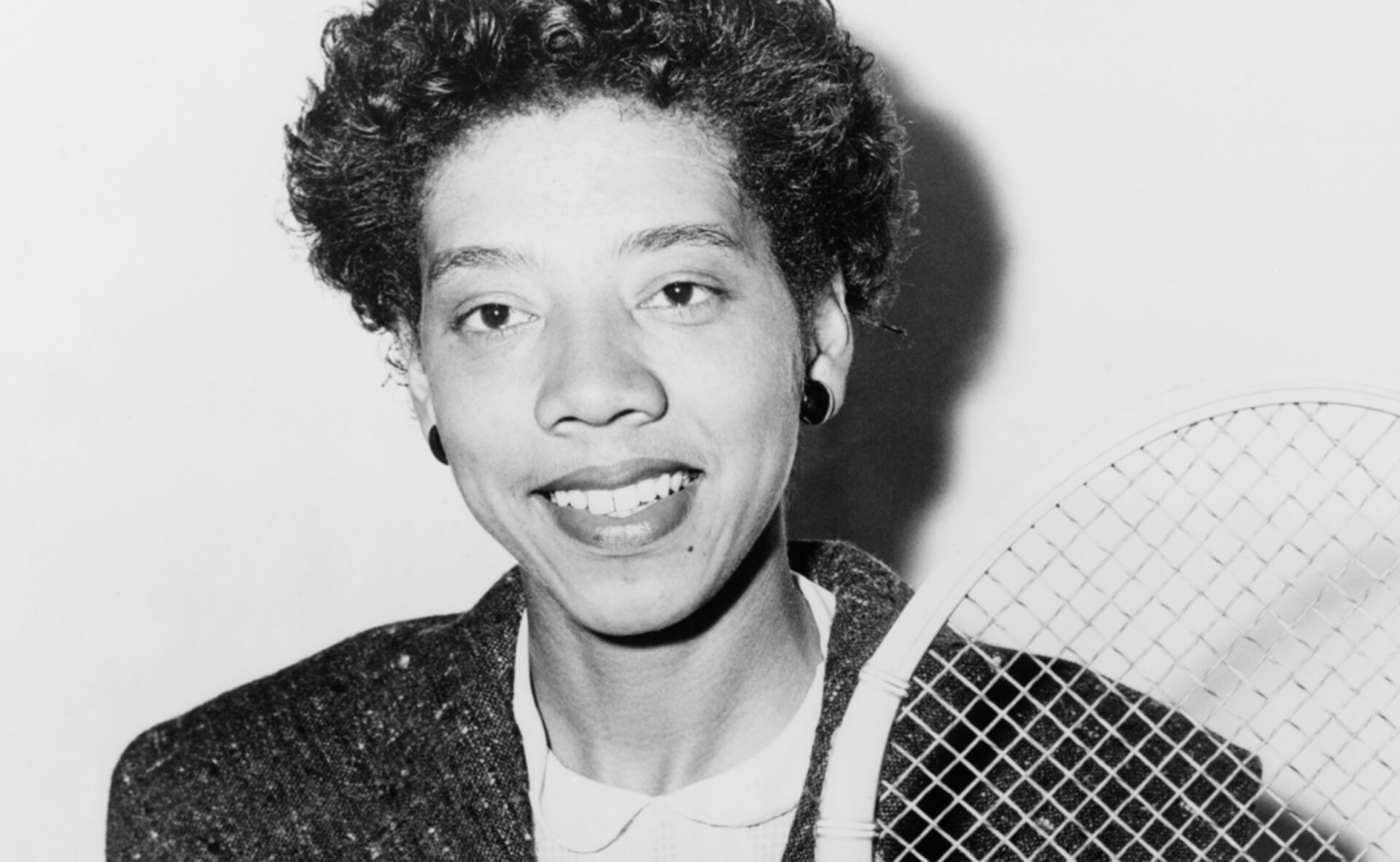
February 27, 2024
Black Enterprise Honors Tennis Star Althea Gibson For Black History Month
"She knew that this was so much more than color. She knew she was opening a door. She knew she was changing the world and she knew that she was the appointed person to do that," said Michelle Curry.
In the 20th century, baseball gradually became America’s favorite pastime, and never-before-seen technology was rising. But something else was happening in a small town in South Carolina. A young Black girl named Althea Gibson was born to be the first Black person to shatter the international color barrier in tennis and golf and win the U.S. Open.

The administrator of Althea Gibson’s Estate and chief operating officer of the Althea Gibson Community Tennis Association, Michelle Curry, sat down with BLACK ENTERPRISE to share an intimate glimpse into Gibson’s life. She highlighted the sports star’s struggles, achievements, and lasting legacy that has continued to inspire generations, influencing the likes of Serena and Venus Williams and putting her in a league of her own.
Althea Gibson was born in 1927 in Silver, South Carolina. Gibson, the oldest of four siblings, and her family soon migrated to Harlem, where they planted their roots on 143rd Street. There, Gibson mastered her craft through street games of paddle ball with neighboring children. With her boundless athleticism (Gibson had a knack for all things sports, even venturing into boxing at one point), she eventually found a niche, excelling in golf and tennis. It was the latter, however, that she would become most recognized for, a feat that was not without its challenges.
“It was difficult coming up in that time because it was very, very segregated, so for Althea, being the No. 1 tennis player in the world…she was not able to go through the front doors of the places she was playing,” said Curry. “She had to change in the car. So there were a lot of things that hindered her emotionally and socially.”
She recalled one particular moment when the tennis legend was denied entry to a Florida tournament due to her race.
“She was the No. 1 player in the world, and they wouldn’t let her in. They would not let her off the highway to get into the city where the tournament was,” Curry revealed. Gibson was not admitted into the competition until she phoned the head of the tournament to deliver her. “She lost that game. That messed with her mind so much that she couldn’t get past it.”
Despite the racism she faced throughout her career, Gibson stood steadfast.
“She stayed dignified,” said Curry. “She did not let it undercut her confidence and self-esteem, though there were times when it was so severe, it did play with her mentally on the court. She knew that this was so much more than color. She knew she was opening a door. She knew she was changing the world, and she knew that she was the appointed person to do that.”
Finally, in 1950, her achievements culminated in her appearance at the U.S. National Championships (now known as the U.S. Open), making her the first African American to compete in the tournament and, later, the first Black person to win. Though she did not win during her initial appearance, she opened doors for herself and her peers, who had long been ostracized.
“Even though Althea had that huge impact, we really did not see a flood of young African American women to the sport. One, because it’s not a cheap sport. But seeing Coco [Gauff] and seeing the stock that that young lady comes from, you beam with pride. All of them are very much aware of the impact that Althea had and that Althea was the first.”
Gibson’s impact doesn’t only exist in tennis. A multifaceted talent, she built just as much of a name for herself off of the tennis court as she did on it. She was an avid political participant, eventually running for a seat in the New Jersey Senate at one point. She was a skillful musician and even accumulated a few acting credits, appearing alongside western star John Wayne in the 1959 film The Horse Soldiers.
“She played saxophone, and she recorded an album of jazz standards,” said Curry. “She was an actress. She was in a movie with John Wayne, so she spread her wings, and she was able to become the person she wanted to be, and that’s why she named her book I Always Wanted To Be Somebody. And she became somebody. And our job is to keep that name alive.”
Achieving legendary status, Gibson also adopted a mentor position, coaching up-and-coming tennis players like Zina Garrison and Leslie Allen while advising the Williams sisters on the best strategies on the court.
Curry has worked tirelessly to preserve Gibson’s name and legacy and has several projects to show for it.
“In the City of Orange, there is a tennis summer camp in her name. We have a partnership with the New Jersey Symphony Orchestra, which keeps the two things she loved the most — tennis and music — alive,” she said.
“We do an annual event during Black History Month. We were snowed out this month but it’s rescheduled for next month. The kids play tennis. We do a history session to learn about tennis, the music, and Althea’s impact. And there’s an actual performance by a quartet from the New Jersey Symphony Orchestra,” she continued.
Gibson is also slated to be featured on the U.S. quarter by 2025, in time for the 75th anniversary of her elimination of the color barrier in tennis.
“Her impact is more than her breaking a color barrier. Her impact is literally showing us how to serve. She used to say all the time, ‘Watch your serve,’ and a lot of people assume your serve in tennis. No, she meant your service to your community and those around you.”